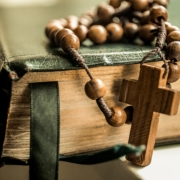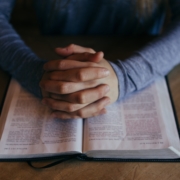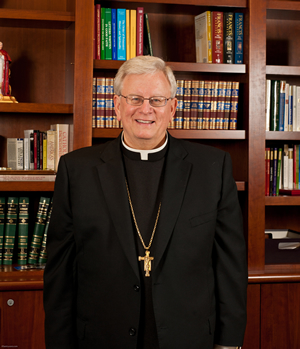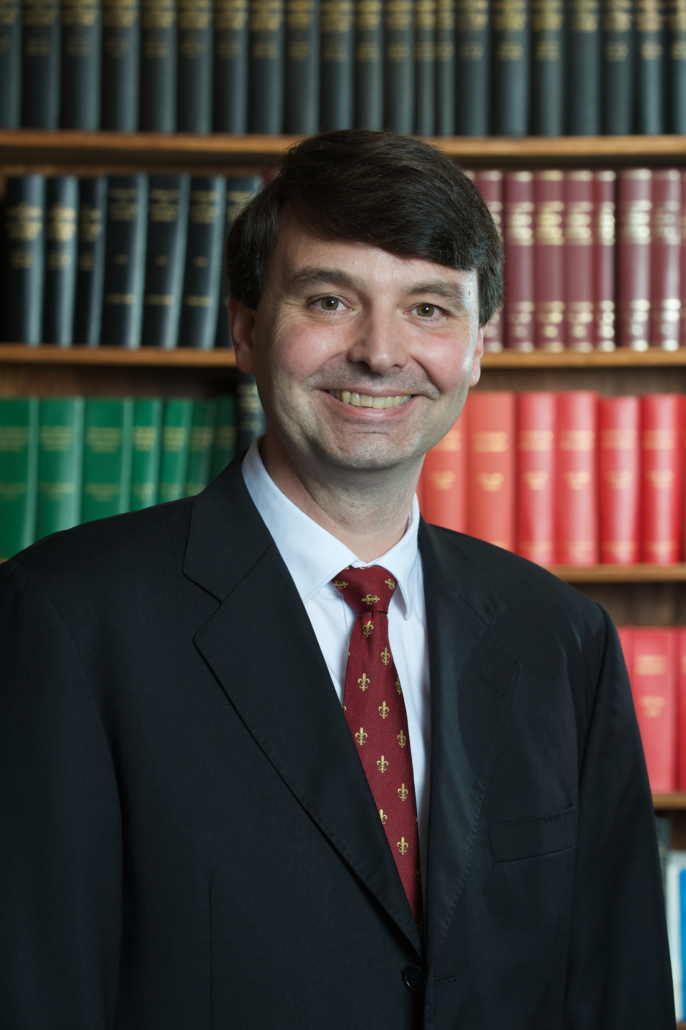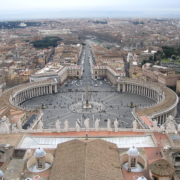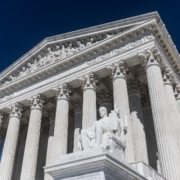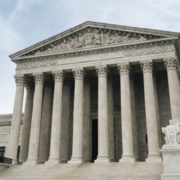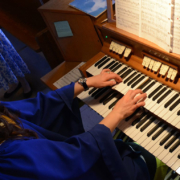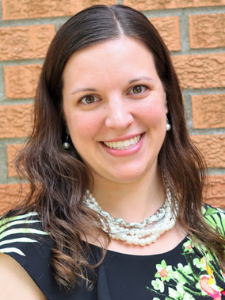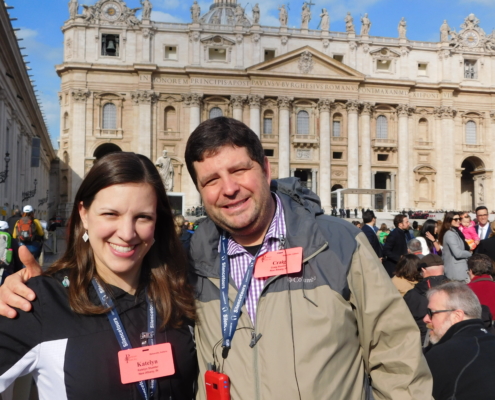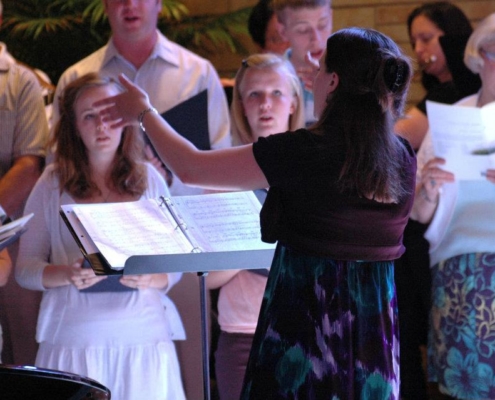Tips for Keeping Your Faith Alive in College
College brings momentous changes in life and exciting opportunities. Having studied at several colleges and universities—both secular and Catholic, in the United States and abroad—and now teaching as a professor, I want to share with you what I hope is both important and useful advice about how to stay Catholic in college. In terms of your long-term happiness, in this life and the next, nothing will be more important than whether you love God and neighbor as you live out your faith.
I remember going running with one of my best friends from high school after we had graduated from college. He was facing some difficult decisions: what career to pursue, where to live, finding the right person to marry. We were talking about how to reach good decisions. I told him that in my life I’ve had success in praying about what the future holds.
“I don’t believe in God,” he replied.
I was shocked. After he spent eight years in a Catholic grade school, both of us attended a Catholic high school for four years. His loving family had a background and culture tightly knit with the Church. Yet college had changed him profoundly, into an avowed atheist. He found himself missing the guidance, security, beauty, and holiness that only a relationship with God in Christ can provide.
My friend was not alone in losing his faith during college. Various surveys show patterns of decreasing belief and participation among Catholics attending college (whether or not they are Catholic schools).
It doesn’t have to turn out this way. I know others who, during college, greatly deepened their appreciation of the beauty and wisdom of the teaching of Jesus, found their vocations, and became much better friends of God.
College is a time of new beginnings, first explorations, and novel experiences. It is also a time of crisis, a turning point, a time of decision, where the direction of travel of adult life is undertaken. I want to share with you some insights gathered from my own experience as well as from trusted friends with even more experience to help you make the most of this turning point. The Church recognizes that college can be a key moment in a person’s spiritual journey.
Be a Good Student
You are laying the groundwork now for a productive future and, in some way perhaps not now known, serving people in a profession. It is a great privilege to be able to go to college, so make the most of it by trying not to miss class unless you are really sick, doing your schoolwork (including starting projects and papers with plenty of time before the deadlines), and taking care of your physical well-being through exercise and eating well. If you get sick, you won’t be able to study well. Do your best both in terms of grades and actual learning.
As a Catholic, you have nothing to fear from embracing learning and acquiring wisdom. There can never be a contradiction between a truth of faith and any truth that you learn in higher education. No area of knowledge is forbidden, off limits, or contrary to spiritual development. Whether you major in history, engineering, biology, English, or psychology, nothing true that you learn can jeopardize or undermine your faith.
That said, there are some ways of approaching these subjects that are indeed incompatible with the Christian faith. Suppose your history professor is a Marxist (both of mine were) who believes that religion, Catholicism in particular, is the “opium of the masses” and a fanciful fable standing in the way of the communist revolution.
Such a professor may slant the telling of history in a way that biases your understanding against the Church and in favor of communism. Weeks will be spent exploring the intricacies of torture in the Spanish inquisition so as to drive home the point that religion leads to violence. But killing and torture in the atheistic former Soviet Union and other Communist countries will be passed over in silence.
Do not be afraid of history, but do be discerning. It is true that members of the Church at times in history have committed acts incompatible with being a follower of Jesus. But as Jesus said, “I came not to call the righteous, but sinners” (Matt. 9:13). Christians, like everyone else, are people who sin and need God’s mercy. That fact is bound to show up in history—and in the world today. As a Catholic you can acknowledge that without fear, but do not be too quick to condemn the people of the past, for you may not be hearing the full story in class.
An objective and fair assessment of the Church’s role in history must also take into account the great good that members of the Church have done through time. It includes: the founding of universities, the establishment of hospitals, the upholding of the rights of young men and (especially) women to consent, or not consent, to marry, as opposed to the older system whereby the children could be forced to marry whomever their parents chose, the preserving of Western culture during the “dark ages,” the invention of musical notation as well as pretzels and beer by monks, and most of all the saints through the ages who have helped, taught, healed, and inspired countless people. It is the saints, not the sinners, that most properly represent the Church.
Learn as much as you can about Catholic culture. Make yourself familiar with Dante, medieval history, St. Augustine and St. Thomas Aquinas, Renaissance and Baroque art and architecture, Gregorian chant, John Henry Newman, Ronald Knox, Pope John Paul II, and Pope Benedict XVI (Joseph Ratzinger).
Alongside your academic reading, read Catholic classics and perhaps the Catechism of the Catholic Church (or the abbreviated Compendium of the Catechism of the Catholic Church). Just read a little bit each day, ten to fifteen minutes. Over time, you will gain invaluable perspective and enlightenment.
Most importantly, read a little bit from the Gospels each day. Get to know who Jesus is and ask Him who you should become. As you read, don’t be afraid to stop and wait. Ponder. Reflect. What insights can you gain from the passage? What is Jesus saying through it to you? If you want to delve a little bit deeper into the meaning of Scripture, try the Ignatius Catholic Study Bible with its commentary, notes, and study questions.
Questions will inevitably arise from your experiences inside and outside the classroom. You will have questions about the faith as well as many other matters that you may not be able to answer. The questioning of your mind, the lack of rest it will experience, is a wonderful thing, for it is an invitation to go deeper.
Don’t be afraid of such questions, for even if the answers are not on the tip of your tongue, that certainly does not mean that the answers are not to be found. Many things that are puzzling for years become easier to understand as you investigate the matter over the course of time.
In order to find the answers, you will have to search out books that are specialized. Your questions will be your questions, so it is impossible to say beforehand what would be best to read in terms of answering them.
But answers are there. We are so fortunate to have the benefit of so many great minds who have considered deeply virtually any matter that might come to mind.
Make Good Friends
As important as learning in the classroom is, you will learn much more outside the classroom. The most important choice you will make in college is not about your major or which classes to take, or even where to live, but the choice of friends.
The friends you choose to have are going to be essential in enabling you to do well in your academic life and in your faith life. Be discerning and picky. Do these people “bring me up” in terms of doing well and living a Catholic life, or do they “drag me down”?
I would find friends at and frequently attend meetings of a solid Catholic group, on campus or off. You could look to a pro-life group, a “faith and reason” group, a parish organization for college students, or a service club. Look for friends who are not obsessed with activities that are at best a waste of time (such as hours of video games or Internet surfing) and at worst can derail your well-being (such as hardcore partying).
Do not use illegal drugs of any kind, even once. If you end up not liking them, you’ve wasted your time and put yourself in needless danger. If you end up liking them, then you could find yourself in short order addicted and miserable.
My best friend from my freshman year in college started out on marijuana, graduated to other drugs, and was expelled from school my senior year after getting into a fight with and injuring a police officer. The changes I saw in him were gradual, but in the end the difference between the person I knew my freshman year and the one who got kicked out was dramatic.
In your future, as you apply for jobs, you may be faced with the question “Have you ever used illegal drugs?” Even if you tried them only once, the only honest answer will be yes. Avoid the conflict. Staying clean is not only the right thing to do; it allows you to always be comfortable answering such questions. (The same is true for any serious violations of the law, such as driving under the influence.)
Be careful of alcohol abuse. During my own college stay, two people from my class died, and another nearly died when he fell out a dorm window eight stories up and impaled himself on an iron fence. Others began a path that would end with a lifelong fight against alcoholism.
Concentrate on your studies rather than getting into sexually intimate relationships. The emotional roller-coaster ride of physical relationships can derail your academic and spiritual development. “Blessed are the pure in heart, for they shall see God” (Matt. 5:8). Do your best to follow God, and He will help guide you to a good spouse if your vocation is to marriage.
Grow Closer to God
As a Christian, you are a friend of God. A friendship with God cannot exist without spending time together. As you go to college and begin your life as an adult, resolve to make deeper your friendship with God by means of a few good habits:
Attend Mass each weekend, no matter what. Jesus asks few things of all his disciples, but this is one of them.
Speak and listen briefly to God each morning and each night, no matter what. Each morning thank God for another day, offering yourself to God that day. Each night, thank God for the good of what has past and consider whether you are better friends with him now than you were this morning.
Look for opportunities to volunteer to help others: for example, elderly shut-ins, disadvantaged children, or those in physical or spiritual poverty. In his first encyclical, Pope Benedict XVI wrote: “Love of neighbor is a path that leads to the encounter with God, and closing our eyes to our neighbor also blinds us to God.In helping other people, you’ll not only be helping them; you’ll also be helping yourself know and love God more.
Go to confession at least once a month. Each sacramental reconciliation is a time to “begin again,” to restore and strengthen your friendship with God. If you get your hair cut more often than you go to confession, you should consider whether your spiritual appearance before God is more important than how you look in a mirror. Be honest with yourself about what you know is right and wrong, and then, if your behavior does not measure up, make a good confession and start again.
One of the most important things that you will be doing in the next few years is figuring out your vocation, your call from God. Should you get married? If so, to whom and when? Should you consider life as a priest or religious? Does God want you to remain single and pursue ordinary work? Perhaps God has a special call for your life, one that you have not yet even considered. In times of doubt, decision, and discernment of your future plans, ask God repeatedly for help, using perhaps the words of Mary at the Annunciation: “Let it be done to me according to your word” (Luke 1:38) or the prayer of Jesus himself, “Not what I will, but what you will” (Mark 14:36).
Find someone trustworthy, such as a good priest or well-informed lay person with whom to talk whenever needed. You will have questions that no book can answer about your own life and spiritual journey. It should be a person you can see frequently and who is knowledgeable in spiritual direction. A spiritual director or confessor, like a coach, helps you maintain accountability, encourages you to keep perspective, and enables you to do your best.
This is an exciting new chapter in your life; it is really the start of adulthood. You owe it to yourself and to God to take the road less traveled—the way that will help you face the challenges before you and find the fulfillment that God created you to have.
Originally published Jan. 1, 2015. The essay was adapted from How to Stay Catholic in College, originally published by Catholic Answers. We highly recommend the entire booklet, which is available for purchase from Catholic Answers for only $2.95 at shop.Catholic.com.

